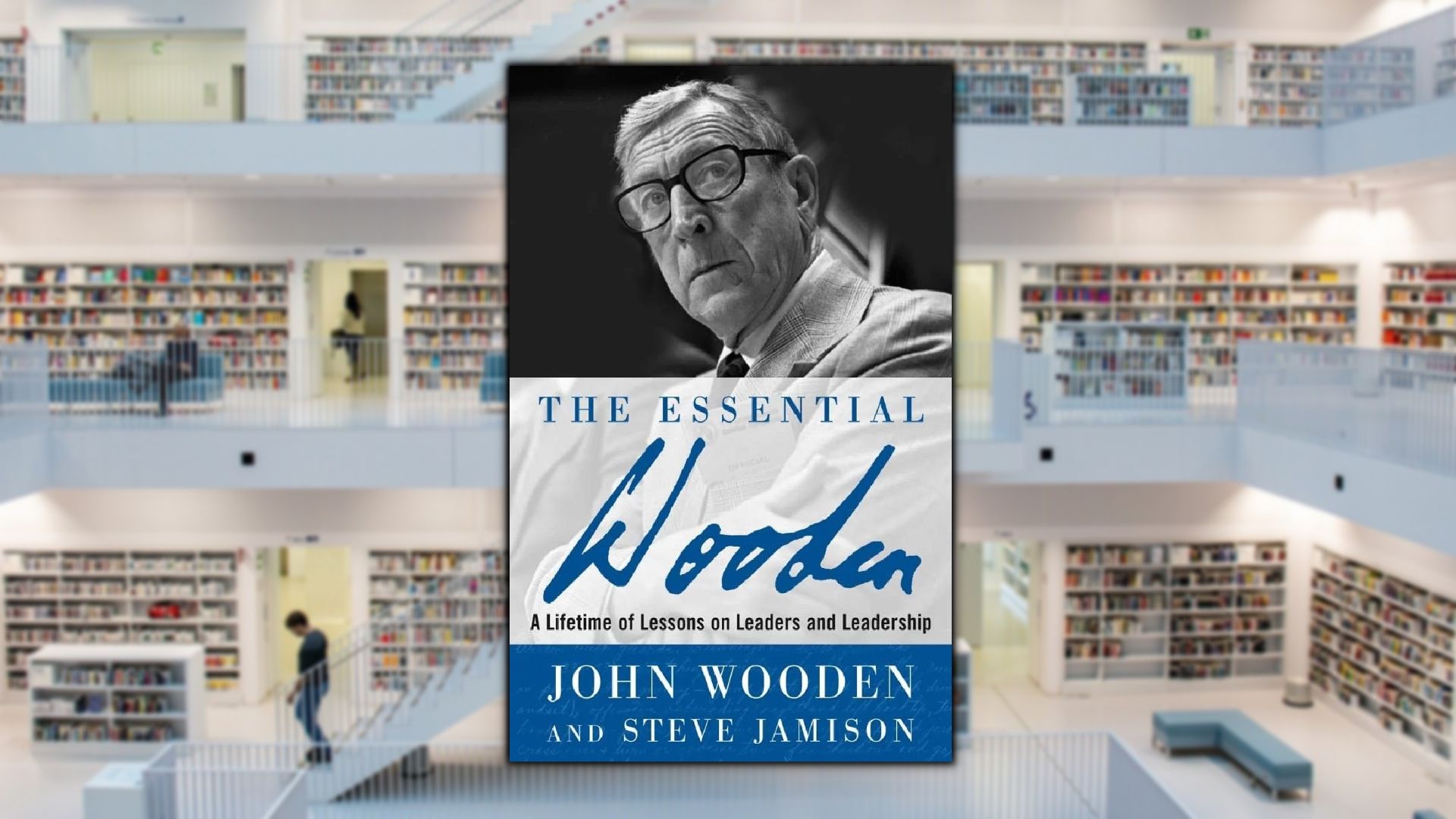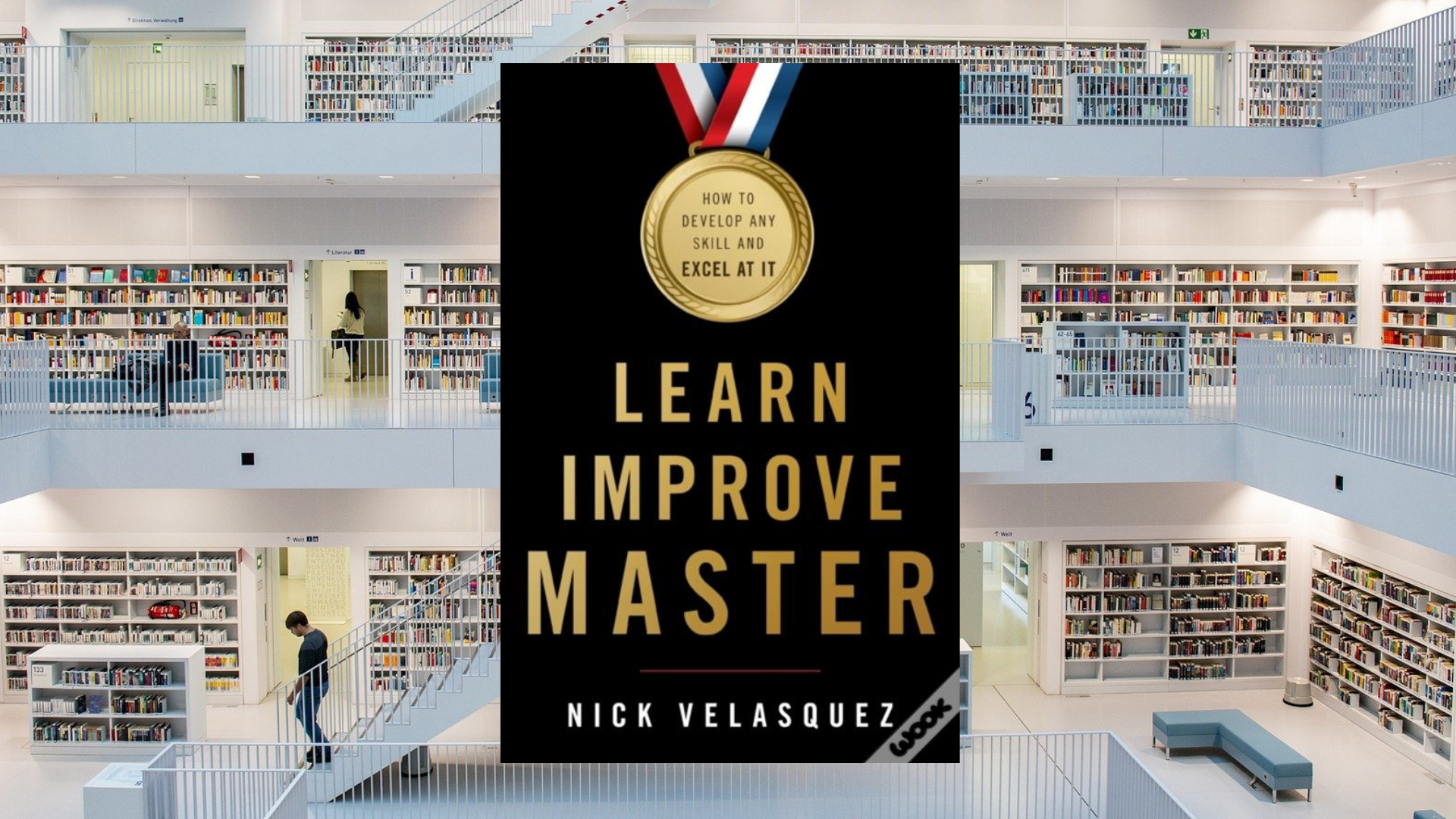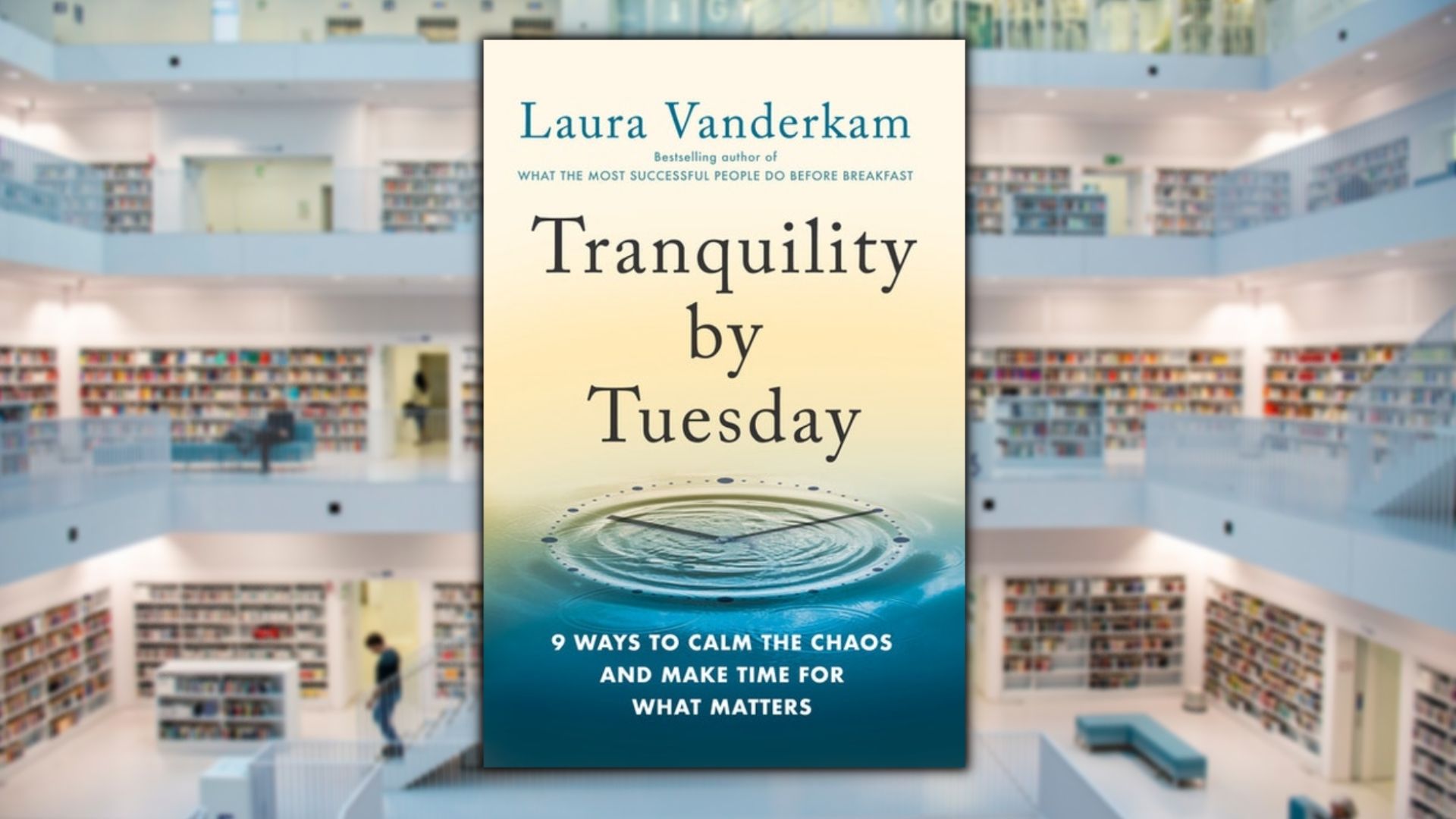Welcome back to the Stairway to Wisdom!
I honestly can't wait to introduce this week's book breakdown - it's one of the best books I've read all year, and the author, John Wooden, is one of my biggest role models and inspirations.
You'll see why this is when you read the breakdown of The Essential Wooden, by John Wooden and Steve Jamison.
Even if you don't like basketball (I could take it or leave it), there are so many vital leadership lessons in this book, and though basketball was the "vehicle" that John Wooden used to teach these lessons, it's really a book about life and how to move through the world with your head held high.
In this issue of the newsletter, we've also got a profile on the amazing Jiddu Krishnamurti, three books that will help you activate your full potential, wisdom from a wonderful book about mastery and skill acquisition, and more!
So let's get started!
Latest Release: The Essential Wooden

“Coach Wooden was more upset if we won but didn't work up to our potential than if we lost playing at our best."
-Eddie Powell
It's hard to do your best, much harder than most people realize. By definition, "your best" is the absolute greatest effort you are capable of giving, and sadly, most people just never even come close to that.
Legendary basketball coach John Wooden was a master when it came to seeing potential greatness and infinite self-worth lying dormant inside the players on his teams, and his leadership style - that you can learn to adapt for yourself - was perfectly suited to drawing excellence from the teammates entrusted to his care.
For Wooden, there was a standard that ranked above winning, and he believed that if you give every single thing you have within you to be your very best, then you're already a success no matter what.
Doing your best is all that can ever be asked of you; it's literally everything, and although winning may be a natural byproduct of that supreme effort, it could never be the sole reason for a team's or a person's existence.
I won't pretend that winning isn't important to me. Indeed, John Wooden and his elite basketball players loved to win, but it was the way they played and behaved that was ultimately more impressive than any of the records or the championships themselves.
Disciplined, intensely focused on executing the fundamentals, self-controlled, team-focused, and unselfish, they would have been winners no matter what, and this is because of Wooden's exceptional leadership style.
John Wooden also possessed an immense moral strength that was given expression in many of the actions he took as a coach and leader. For one thing, when racism was still a significant presence in collegiate sports, he refused to enter basketball tournaments that his black players weren't allowed to participate in.
They were a team, and if they couldn't all play, then none of them were going to be there. It was this strict, incredibly demanding coaching style, combined with this gentleness, and a strong, enduring belief in human potential and infinite human worth that made John Wooden such a spectacular role model. One that we would all do well to emulate in our own lives.
There's so much that we can all learn from John Wooden's example, and we're going to examine several of his most fundamentally important lessons here in this book breakdown.
--> Read the rest at the Stairway to Wisdom!
Inside the Mind: Jiddu Krishnamurti

Inside the Mind is where we take you deeper into the life and thought of a major literary figure, someone who has had an extraordinary impact on our collective knowledge and wisdom.
Today I'm featuring Jiddu Krishnamurti (1895-1986), one of my biggest intellectual influences, and someone, like Friedrich Nietzsche, who was able to make you question everything you've been taught to believe and see life completely anew.
At a very young age, the leaders of the Theosophical Society tried to spread the idea that Krishnamurti was a "vehicle" for an expected World Teacher, a distinction that Krishnamurti categorically rejected.
Actually, on the very day that he was scheduled to assume leadership of an organization dedicated to spreading this dumb idea, he gave a now-famous speech entitled Truth is a Pathless Land, in which he said:
"I have now decided to disband [the organization], as I happen to be its head. You can form other organizations and expect someone else. With that I am not concerned, nor with creating new cages, new decorations for those cages. My only concern is to set man absolutely, unconditionally free."
In the years after that, he traveled all over the world giving public talks about freedom, truth, belief, war, love, and nature, never endorsing a single belief system or a single leader, and never wanting to become a leader himself.
He gave up everything for his fundamental idea that a free mind can never follow any authority, any belief system, any method - and in doing so he showed millions of people that freedom is available to all of us in every moment.
A Few Quotes from Jiddu Krishnamurti:
“It is no measure of health to be well adjusted to a profoundly sick society.”
“You must understand the whole of life, not just one little part of it. That is why you must read, that is why you must look at the skies, that is why you must sing, and dance, and write poems, and suffer, and understand, for all that is life.”
“Tell your friend that in his death, a part of you dies and goes with him. Wherever he goes, you also go. He will not be alone.”
Start with This Book: The Revolution from Within, by Jiddu Krishnamurti
Another Good Place to Start: Think on These Things, by Jiddu Krishnamurti
Wisdom in Action:

You'll notice that every book summary in the Stairway to Wisdom comes with Action Steps. That's because when you really want to bring about changes in your life, knowledge is not enough.
After learning and knowing, you must do.
We want every one of our readers to see and feel their lives changing for the better, immediately and over time.
So in this section, we've taken the first three Action Steps from Learn, Improve, Master, one of the greatest books out there on gaining mastery and skill, and put them right in front of you so that you can take action today:
#1: Ask a Practitioner to Help You Build a Map
When you're first starting out, one of your main priorities will be to get an overview of what's involved when it comes to learning and performing your chosen skill, and one of the best ways to do that is to ask someone who's already done it.
Usually, you'll find that people are more than happy to help you, and many of them will feel especially honored that you've taken an interest in something that clearly means so much to them. Most people are helpful and friendly, and so you should go ahead and ask people who are at least slightly ahead of you about what you should know.
What you're looking for is any information they can give you that's going to be helpful as you embark on the learning process yourself. Things like which mini-skills the main skill can be broken into; challenges that are looming ahead and mistakes that beginners usually make; how much time you should expect to have to devote to mastering each mini-skill, etc.
What's in store for you as you begin to take this skill or activity more seriously? What should you pay special attention to, and how can you benefit from the person's experience? Those are the kinds of things you're trying to find out in this preliminary step.
#2: Make Your Practice Habit Convenient to Do, and Inconvenient to Break
Most habits are easy to do, but they're also easy not to do, which is why you have to pay special attention to how you structure your habits.
If this new skill is important enough to you, you're naturally going to have more motivation to practice than you would otherwise, but motivation is so much less powerful than discipline. Motivation comes and goes with how you feel, but discipline - and an excellent support network - will always be there for you.
Having a mentor - someone you do not want to disappoint or let down - can work spectacularly well for getting you to stick to a practice schedule. There are also other "commitment devices" you can use, such as stating publicly on social media that you're going to do something, or pledging that you're going to donate money to a charity you find abhorrent for every time you skip practice.
Whatever you decide on, there should be real consequences for abandoning your plan, and it should be more inconvenient or painful for you to renege on your commitments than it would be for you to just do what you said you were going to do in the first place.
#3: Adjust Your Level of Difficulty
As you proceed along the path to mastery, you're going to notice that you do better in some areas having to do with your chosen skill than in others. Especially while working with a competent mentor, you're going to become painfully aware that you need more work here rather than there.
The right move at this juncture is to pay special attention to your weaknesses and do what you can to turn them into strengths. Whether that's shooting hundreds of free throws one after another in basketball, or working on your vibrato while playing the violin, you can structure your practice sessions in such a way that you work to overcome these limitations.
Then, once you've improved satisfactorily in that area, you can move on to your next weak spot and repeat the same process. Repeat for as long as you never want to remain average.
Read the Full Breakdown: Learn, Improve, Master, by Nick Velasquez
From the World of Reading:

If you think that Twitter is overly negative and you don't feel good about spending time there, Meta just launched a competing social media site called Threads that is supposed to be about starting public conversations instead of public arguments.
I made an account the very first day it came out - and accumulated 6,000 followers in just a few days! Now, that's partly because there's the option for Instagram users to just refollow everyone they already follow, and so that gave me a big headstart.
But I'm going all-in on Threads and I'm posting a ton of book recommendations, reviews, and such every day. That is until Elon Musk shuts the whole thing down with this lawsuit that he's been threatening! You'll probably be hearing about that one!
Anyway, Threads is meant to be a place for holding meaningful conversations about things you care about, and I care about books, so here we are! I'd love to see you over there as well!
Further Reading: Threads
Learn This Concept: Competitive Greatness

Just because you won, it doesn't mean you were any good. And even though you may have lost, that doesn't mean that you didn't achieve Competitive Greatness.
Performing at your best - Competitive Greatness - has nothing to do with winning, and everything to do with the battle itself. Speaking for myself, it's much more gratifying to lose to a superior opponent (after having given my best effort) than to win easily against someone in a competition where I didn't even have to try.
We feel good about ourselves because we kept going when it was difficult; because victory was never guaranteed; because the opponent was great but we were even better. So you can see how, in this way, the result of the contest is irrelevant compared to the manner in which you showed up and the supreme effort you brought to the attempt.
You'll never know how good you could become if you never face an opponent that demands your total effort in order to defeat them. In an excellent book about the teachings of John Wooden, Wooden on Leadership, Coach has this to say:
"Competitive Greatness is having a real love for the hard battle knowing it offers the opportunity to be at your best when your best is required.
The great competitors I have played for and against, taught and admired all shared a joy in the struggle itself - the journey, the contest and competition. The tougher the battle the better.
A leader must convey this to those you lead: a tough fight can bring forth Competitive Greatness. The hard battle inspires and motivates a great competitor to dig deep inside.
That's why I relish the challenge a worthy competitor presents. You are tested. When properly prepared you will rise to your highest level and achieve Competitive Greatness."
Further Reading: The Essential Wooden, by John Wooden and Steve Jamison
Three Books: How to Activate Your Full Potential

There is a book for every problem you could ever face. Whatever it is that you're dealing with, someone else has also gone through something similar, come out stronger on the other side, and written about it in a book.
With that in mind, here are three books that can show you how to step into your full power, and turn the imaginable into the possible into the actual:
Can't Hurt Me, by David Goggins:
“You’re probably living at about 40% of your true capability. Damn shame.”
This Book Breakdown contains 10 Key Ideas, 7 Action Steps, and 57 Book Notes. Read It Here.
Limitless, by Jim Kwik:
“Often our greatest struggles lead to our greatest strengths. My two biggest challenges as a child were learning and public speaking. Life has a sense of humor because I spend most of my life public speaking on learning.
I couldn't read, and now I teach people from all over the world how to read better. I struggled to understand my brain, and now I speak in front of audiences of thousands to help them understand the amazing tool they possess."
This Book Breakdown contains 8 Key Ideas, 5 Action Steps, and 33 Book Notes. Read It Here.
Be Your Future Self Now, by Dr. Benjamin Hardy:
“Every little action you take toward your Future Self enhances your level of commitment and knowing. Every little action toward your Future Self is the evidence of your faith. Every little action toward your Future Self is you more fully being your Future Self now."
This Book Breakdown contains 21 Key Ideas, 7 Action Steps, and 96 Book Notes. Read It Here.
Upgrade Your Reading:

The “10% Rule” could help you read 37x more books next year.
It is very simple and very easy to implement, and it's going to help you TREMENDOUSLY when it comes to both discovering new books to read and finishing them faster.
I’ve used it personally to read more than 100 books a year EVERY SINGLE YEAR for the last ten years.
So I know that the 10% Rule works.
There are actually two different versions of the 10% Rule, and I discuss both of them in this video.
I’m also making an effort to establish a stronger presence on YouTube this year and bring you guys GREAT videos about reading faster, learning more effectively, finding great new books to read, and more, and I need your help!
If you wouldn’t mind, leave a comment on the video telling me what you liked or didn’t like, which videos you’d like to see me make in the future and anything else you’d like to suggest!
I read every comment and try to respond to all of them.
Further Reading: The 10 Percent Rule
Study Notes: Tranquility by Tuesday, by Laura Vanderkam

I first read Laura’s other book, 168 Hours, years ago and have been following her work ever since. One idea that I keep coming back to from that book is that the best way to manage your time is to figure out how you’re spending it now.
At this point, I’ll read pretty much anything she publishes, and I actually listened to her read the audio version of this one instead of reading the print version. But yes, I highly recommend reading this book in any format, because Vanderkam not only has some essential things to share about the nature of time itself, but she also gets extremely practical about how we can deploy ours better.
Time is one of the most fascinating subjects ever, as far as I’m concerned, because it’s so elusive, so difficult to pin down into “what it is” and “what it means.”
It’s eternal, but it’s also constantly slipping away; it’s endless, but we never have enough of it; and when we receive a gift of unexpected time, we struggle with how to use it most effectively.
Our perception of time also changes based on what we value and what we’re doing with it, and as books like Carlo Rovelli’s The Order of Time suggest, we don’t even know what time actually is. For all we’ve studied it and measured it and tried to expand it and use it better, we still have very little idea about even the fundamental nature of time itself.
All of this is to say that I’ll also read pretty much anything (anything thoughtful, that is), about time and how to use it, and Laura Vanderkam is one of the better writers on this subject.
Tranquility by Tuesday is based on her own study of 150 people who learned time management rules over a period of nine weeks. Each week, participants put one rule into action and then were asked to reflect upon the results. For reference, here are the nine rules:
1. Give yourself a bedtime. Go to sleep at about the same time every night unless you have a good reason not to.
2. Plan on Fridays. Think through your weeks, holistically, before you’re in them.
3. Move by 3 p.m. Do some form of physical activity for ten minutes in the first half of every day.
4. Three times a week is a habit. Things don’t have to happen daily to become part of your identity, and “often” can be more doable than “always.”
5. Create a backup slot. Make a resilient schedule where your priorities still happen, even when life doesn’t go as planned.
6. One big adventure, one little adventure. Each week, do at least two things that will be worth remembering.
7. Take one night for yourself. Commit to an activity you love that is separate from work and household responsibilities.
8. Batch the little things. Keep most of your schedule clear of unimportant tasks.
9. Effortful before effortless. Do active leisure activities before passive ones whenever time opens up.
I don’t tend to take as many notes when I’m listening to audiobooks, but more than a few thoughts stuck out, and I made sure to record them here.
My favorite thought while listening to the book was that people spend all this money to be happier, but happiness is mostly free! I guess I knew that, as you probably do too, but it never hurts to be reminded of the blindingly obvious sometimes. The obvious is what we tend most easily to forget.
Something else that I kept returning to was the idea that instead of asking what could go wrong, it’s much more conducive to sanity to start asking what could go right! At least something goes right in our lives every single day, and when we start looking for it, we’ll start noticing it more often. It seems to me that it’s a much better use of time to go around looking for the good in life than fixating on the negative and what could be better.

A SAMPLE OF MY BOOK NOTES FROM TRANQUILITY BY TUESDAY:
“Going to bed early is how grownups sleep in.”
“We need to think about any stretch of time before we are hurtling through it.”
“Plans are worthless. But planning is everything.”
“Novelty creates memory. Memories expand time.”
“Once you claim a time, things just tend to naturally take shape around it.”
“Life changes when you know that hundreds, if not thousands, of future adventures are waiting for you.”
Further Reading: Matt Karamazov's Notes from 1,150+ Books
What's Next?

That's it for this week! Next week, I'll be back with more book breakdowns, inspiring thinkers, novel concepts, big ideas, reading tips, and more.
In the next issue, I will also be releasing the breakdown of Excellent Advice for Living, by Kevin Kelly, a beautiful collection of aphorisms from the brilliant technologist Kevin Kelly, originally handed down to his children on the occasion of his 68th birthday.
Also, if you have any bookish friends that you think would love the Stairway to Wisdom, you can click the button below and share it with them. I mean, what are friends for?
We covered a lot today, and again, thank you very much for joining the Stairway to Wisdom. The whole team is behind you! We all want you to win!
Until next time...and happy reading!
Matt Karamazov

